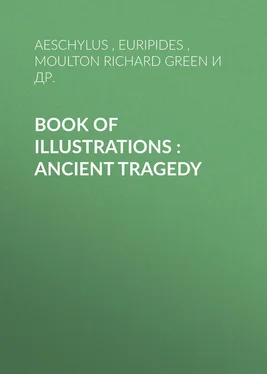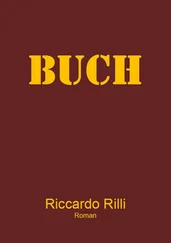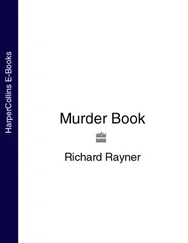Richard Moulton - Book of illustrations - Ancient Tragedy
Здесь есть возможность читать онлайн «Richard Moulton - Book of illustrations - Ancient Tragedy» — ознакомительный отрывок электронной книги совершенно бесплатно, а после прочтения отрывка купить полную версию. В некоторых случаях можно слушать аудио, скачать через торрент в формате fb2 и присутствует краткое содержание. Жанр: foreign_antique, foreign_prose, на английском языке. Описание произведения, (предисловие) а так же отзывы посетителей доступны на портале библиотеки ЛибКат.
- Название:Book of illustrations : Ancient Tragedy
- Автор:
- Жанр:
- Год:неизвестен
- ISBN:нет данных
- Рейтинг книги:5 / 5. Голосов: 1
-
Избранное:Добавить в избранное
- Отзывы:
-
Ваша оценка:
- 100
- 1
- 2
- 3
- 4
- 5
Book of illustrations : Ancient Tragedy: краткое содержание, описание и аннотация
Предлагаем к чтению аннотацию, описание, краткое содержание или предисловие (зависит от того, что написал сам автор книги «Book of illustrations : Ancient Tragedy»). Если вы не нашли необходимую информацию о книге — напишите в комментариях, мы постараемся отыскать её.
Book of illustrations : Ancient Tragedy — читать онлайн ознакомительный отрывок
Ниже представлен текст книги, разбитый по страницам. Система сохранения места последней прочитанной страницы, позволяет с удобством читать онлайн бесплатно книгу «Book of illustrations : Ancient Tragedy», без необходимости каждый раз заново искать на чём Вы остановились. Поставьте закладку, и сможете в любой момент перейти на страницу, на которой закончили чтение.
Интервал:
Закладка:
Then follows an elaborate lyrical scene: the Chorus giving vent to their excitement in Strophes and Antistrophes irregularly succeeding one another , Clytaemnestra occasionally joining in. O for death, sudden and without lingering, now that our beloved Protector is gone! Ah! Helen! one more deed of woe to your account! — Clyt. No need to wish for death or upbraid Helen. — Cho. ( interrupting ) O dread Power that dost attack this household, working even through women deeds of dread! — Clyt. Now thou art right: it is the Evil Genius of the House that feeds in their hearts the lust of blood; bringing fresh blood-guilt ere the old is healed. — Cho. Yes, there is a Power wrathful to the House; but it must be through Zeus he works; what amongst mortal men is wrought apart from Zeus?
Ah me! Ah me! {1467}
My king, my king, how shall I weep for thee?
What shall I speak from heart that truly loves?
And now thou liest there, breathing out thy life,
In impious deed of death,
In this fell spider's web!
Yes woe is me! woe, woe!
Woe for this couch of thine unhonorable!
Slain by a subtle death
With sword two-edged, which her right hand did wield.
Clyt. You speak of me as the doer: it was the Avenger of the seed of Atreus who did the deed in the semblance of this dead man's wife. — Cho. None will hold thee guiltless of the deed; yet, perchance, thou mayest have had as helper the avenging Fiend of that ancestral time; he presses on this rush of murders of near kin.
Ah me! Ah me!
My king, my king, how shall I weep for thee?
What shall I speak from heart that truly loves?
And now thou liest there, breathing out thy life,
In impious deed of death,
In this fell spider's web!
Yes woe is me! woe, woe!
Woe for this couch of thine unhonorable!
Slain by a subtle death
With sword two-edged, which her right hand did wield.
Clyt. This deed brings no dishonor to me: he slew my daughter and his own, wept over with many a tear; now slain in recompense he is gone to Hell with nothing to boast over. — Cho. Whither escape from this House? No longer drops, but fierce pelting storm of blood shakes it to its basement. — Cho. Oh that earth had received me ere I saw this sad sight! Who will perform funeral rites and chant the dirge? Wilt thou who hast slain dare to mourn him? — Clyt. It is no care of thine: we will give him burial; and for mourning – perhaps Iphigenia will greet him kindly by the dark streams below. — Cho. Hard it is to judge; the hand of Zeus is in all this; ever throughout this household we see the fixed law, the spoiler still is spoiled. Who will drive out from this royal house this brood of curses dark? — Clyt. Thou art right; but here let the demon rest content; suffice it for me that my hand has freed the house from the madness that sets each man's hand against each. [Observe: in this last infatuated confidence and throughout Clytaemnestra's exultation in the deed the dramatist is laying the foundation for the second play of the Trilogy.] {1534}
Enter Aegisthus by one of the two Inferior doors in front of the scene [representing the inferior parts of the Palace in which he has been concealed since the return of Agamemnon].
Aegisthus salutes the happy day of vengeance which shows him Agamemnon paying penalty for the deeds of his father: he relates the quarrel between this father Atreus and his own father Thyestes, how when the one brother came as suppliant to the other Atreus spread before him the horrid banquet of his own child's flesh, at the knowledge of which he died. Aegisthus himself had suffered banishment at the hands of Atreus while yet a child, and now has returned full grown to work vengeance on the son of his wronger, to see the long contrived nemesis brought to full conclusion. — Chorus note that he confesses the deed, and he shall not escape the righteous curse a people hurls with stones. — Aeg. Know your place: you are oarsmen, we command the ship; prison and fasting are admirable devices for helping old people to keep their tempers within bounds. Defiances are interchanged: the Chorus taunting him that he had to get a woman to do the deed he dared not do himself, — Aeg. contemptuously says the working out of the fraud was the proper province of a woman, especially as he was a known foe. – The Chorus threaten vengeance and suggest the name ORESTES as avenger: At this Clytaemnestra starts, Aegisthus enraged gives the signal at which {1626}
Bodyguard of Aegisthus pour in through both the Inferior doors on either side of the Central door of the Palace, and fill the stage [thus producing one of the Scenic Tableaux of which Aeschylus was fond]. The Chorus, though of course outnumbered, are nothing daunted, as representing the legitimate authority of the State now Agamemnon is dead, and therefore sure to be backed by the City; they make as if to ascend the stage.
Contest in blows between Chorus and Bodyguard of Aegisthus appears inevitable, but Clytaemnestra throws herself between them, urges that enough ill has already been done, and after further defiances, forces Aegisthus away and play abruptly terminates: the Chorus returning to the Right into the City, and the Bodyguard into the Palace .
SECOND PLAY: MIDDAY:
THE SEPULCHRAL RITES
( CHOEPHORI )
The Permanent Scene, as before, represents the Palace of Agamemnon at Argos. The only difference is that the place of the Thymele in the centre of the Orchestra is taken up by Agamemnon's Sepulchre. Enter by the Left Side-door (signifying distance) Orestes and Pylades, and descending the Orchestra-staircase advance to the Sepulchre.
Orestes , invoking the Conductor of the Dead, lays locks of hair and fragments of garments as offerings on his Father's tomb, cut off as he had been by exile from being present at the actual Funeral-rites:
He is interrupted by the opening of one of the Inferior Doors of the Palace, out of which comes Electra, and a train of Trojan Captive-maidens bearing urns of libations, all with dishevelled hair and the well-known gestures proper to Sepulchral rites. They descend (with the exception of Electra) the Orchestra-staircase, and perform a Choral Ode with funeral rhythm and gestures. Orestes and Pylades, recognizing them, stand aside. {19}
in three Strophes, Antistrophes, and an Epode,
describes in words the tearings of cheeks, rending of garments, and groans, which are actually the gestures of their dance, and are proper to a Sepulchral rite such as they have been sent to perform by their Queen, terrified as she has been by a dream the night before, a dream signifying how the Dead were wroth with those that slew them. But the Chorus like not this graceless deed of grace: what ransom can be found for the overthrow of the lord of a house? with him Awe has been overthrown, and Fear takes its place, or yet more Success is God. {53}
Yet stroke of Vengeance swift
Smites some in life's clear day;
For some who tarry long their sorrows wait
In twilight dim, on darkness' borderland;
And some an endless night
Of nothingness holds fast.
Yes: for blood once spilt, for the marriage tie defiled, there is no remedy – yet the Chorus must, as part of their bitter captive lot, perform the rite they have no heart in. {75}
Through this Ode Electra, who ought to have taken the lead, has stood on the stage irresolute: she now addresses the Chorus, who at her word fall into their Episode positions.
Читать дальшеИнтервал:
Закладка:
Похожие книги на «Book of illustrations : Ancient Tragedy»
Представляем Вашему вниманию похожие книги на «Book of illustrations : Ancient Tragedy» списком для выбора. Мы отобрали схожую по названию и смыслу литературу в надежде предоставить читателям больше вариантов отыскать новые, интересные, ещё непрочитанные произведения.
Обсуждение, отзывы о книге «Book of illustrations : Ancient Tragedy» и просто собственные мнения читателей. Оставьте ваши комментарии, напишите, что Вы думаете о произведении, его смысле или главных героях. Укажите что конкретно понравилось, а что нет, и почему Вы так считаете.












